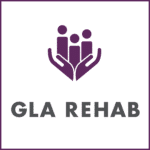I connected an emotionally regressive client with their Psychiatrist and Psychologist and facilitated strategies for low mood and anxiety.
By Lori MacFadyen, Occupational Therapist
On March 25, 2020, due to COVID-19 restrictions of limited in-person sessions, I completed a video conference session with my client. Her daughter was present for the session and assisted with translation as needed.
Due to the COVID-19 pandemic, the client’s in-clinic physiotherapy and massage therapy has been put on hold. She has not been able to attend aqua therapy twice a week at the gym with her Rehab Therapist as she did prior to the Covid 19 restrictions.
Given the reduction in physical rehab, her pain symptoms have been worsening. She was attempting to continue with her walking and exercise program on her own.
At that time, she reported that she was doing well emotionally. Her psychologist reduced their sessions to once a month.
However, on April 6, 2020, her Rehabilitation Therapist, phoned me with concern regarding the rapid decline in the client’s emotional status. The next day, I completed a video conference call (due to the COVID-19 restrictions) with the client.
It was evident that her emotional status had declined considerably since my previous remote session with her.
She was not leaving her bedroom. She was isolating herself from her family. She was sad and tearful most of the day. She was increasingly anxious, worrying about the pandemic and her family. She was feeling nauseous often and her appetite was poor. She was no longer going outdoors for walks or exercise.
I offered strategies around routine and mental health, such as mindfulness, deep breathing, going for walks, completing her exercises, leisure activities to bring the family together and engaging in self-care tasks etc.
I offered to contact her psychiatrist and psychologist to arrange support for the client, and the client agreed that this would be helpful.
I immediately phoned and spoke to the office staff of her Psychologist and Psychiatrist, and they completed remote sessions with her the same day. They have scheduled follow-up sessions in 1-2 weeks each also. The next day, I completed a follow-up video conference session with the client.
The Rehab Therapist has continued to offer support through remote sessions, assisting with strategies around low mood and anxiety, as well as the importance of routine and helping her to plan her day. The client continues to report physical, cognitive and emotional problems, which has been declining due to the recent pandemic and imposed social distancing measures.
As we are unsure of the duration of this pandemic and the restrictions with regards to social distancing, it is important to continue therapies on a virtual platform to maintain a weekly schedule and structure, to help with routine and activity engagement, and to prevent further emotional decline.


